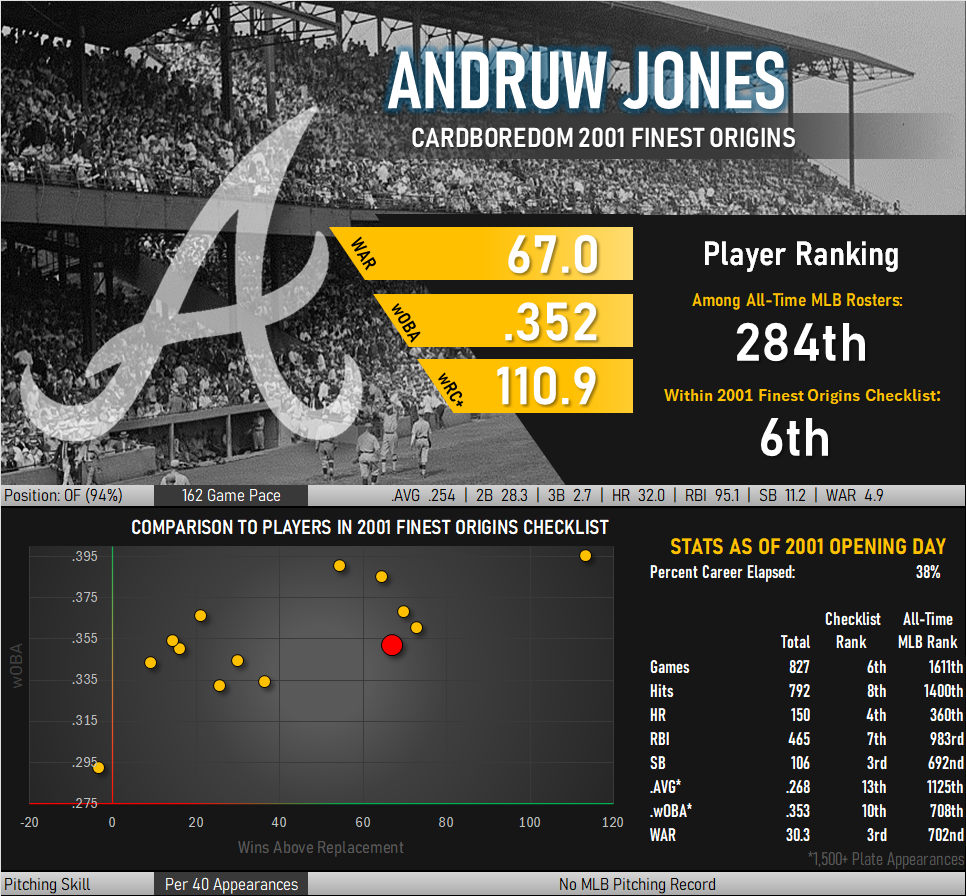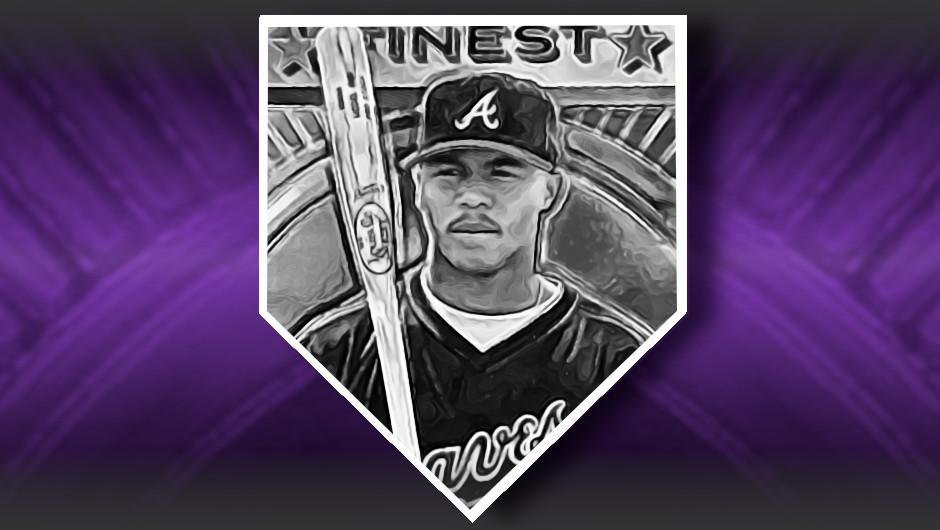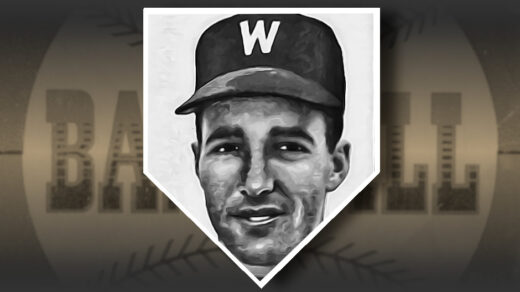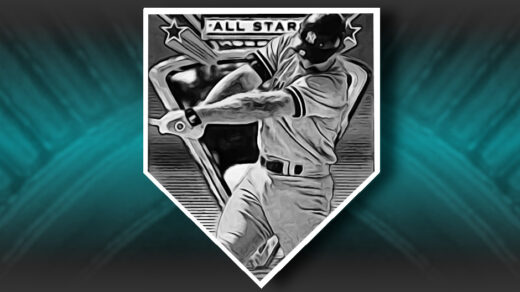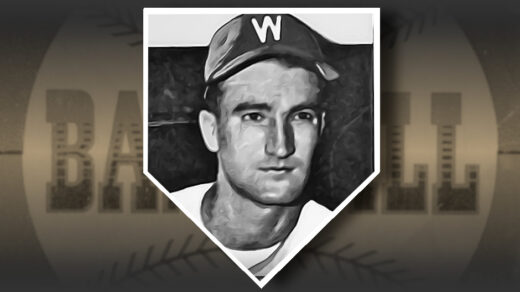I never forgave him for getting old.
Ray Kinsella, Field of Dreams
Just how far can a baseball player decline from peak performance before fans begin sounding like Ray in Field of Dreams? The career arc of Andruw Jones may provide some insight into where this invisible border between peak and longevity lies.
I enjoy looking at comparisons of current players against the stats of the game’s all-time greats at the same age. An always popular dataset focuses on ranking homeruns by age. Jones appears among the leaders in this category, hitting the 9th most HRs of any player through age 30. The rest of the top 10 are considered to among the best power hitters of all time, including names like Mantle, Pujols, Griffey, and Foxx. His total is 2 more than that of career leader and fellow Brave outfielder Hank Aaron. Jones holds the club’s single season home run record with 51, a figure that surpasses the highest totals of Braves legends Aaron and Ed Mathews.
On top of this, Jones may have been the greatest defensive centerfielder of all time. Defensive metrics get a bit distorted at extremes and Jones’ performance certainly inhabits the outer bounds of the scale. Some figures suggest he saved 25% more runs than the second best centerfielder, Willie Mays. I don’t quite buy the idea that gap was that far ahead of Mays, but certainly concur with the thought that Jones’ outfield performance is one for the ages. Although Atlanta fans may not have realized it at the time, the team effectively had Mays patrolling their outfield and batting in the middle of the lineup for a decade. The team’s legendary pitching probably owes a big thank you to Jones.
Defensive guys usually are not very handy with a bat. Ozzie Smith and Bill Mazeroski are examples of this with both players generally considered the best at their respective positions (SS and 2B). How much more would the sport have cheered Ozzie Smith if he had hit like Cal Ripken? Mazeroski’s legend is centered around hitting a pair of homeruns over 7 games in the 1960 World Series, including one to win Game 7 in the final at bat. Jones hit two HRs in his first two WS plate appearances.
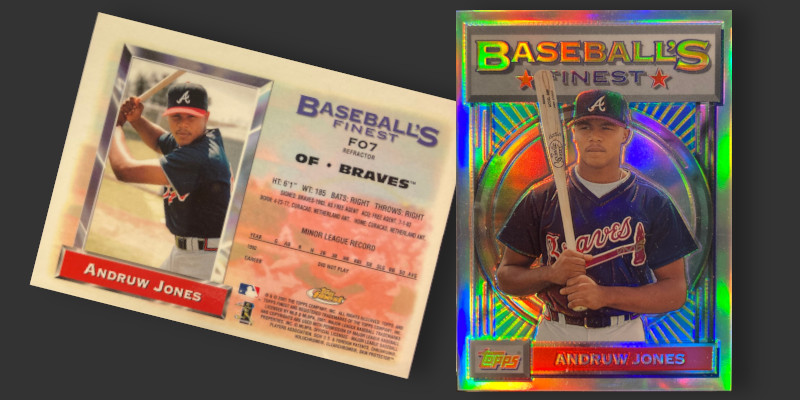
The Second Half
I mentioned earlier that Jones is one of 9 players to hit more homeruns than Hank Aaron through the age of 30. Aaron would be just another name on this list (if there is such a thing) if he hadn’t gone on to hit nearly another 400 after turning 31. Jones would only average a dozen homeruns annually over the remainder of his career, adding just 66 more to his total.
As with a good number of 30+ year old athletes he began to struggle with physical conditioning. His batting average barely registered .200 after this point. His defensive skills nosedived after the 2007 season, turning once routine outfield highlight footage scarce. Off field incidents began to emerge as well that affected public perception. Jones played a series of single season stints with other teams looking to regain his prior form before retiring at just age 35 in 2012.
Where to Draw the Line?
While fans of the sport rightfully criticize Jones’ performance in the backend of his career, they also witnessed gigantic production drop-offs from former greats like Albert Pujols and Ken Griffey, Jr. Despite Jones’ decline, he still managed to log career offensive totals similar to the likes of Andre Dawson and Dale Murphy while piling elite defense on top.
There is lots of debate as to where one should rank Jones among the game’s all-time roster of players. The weight of his second half decline brings down impressions of his overall career. An interesting twist would be to ask where he would rank if he had retired on his 30th birthday. At that time he had accumulated more peak years than Sandy Koufax, another acknowledged “best-of” player who left the game before having a chance to enter decline.
Albert Pujols, who has logged a similar stretch of second-half career collapse, appears to be wrapping up his tenure this season with a last-ditch effort to hit his 700th homerun. The first half of his career was so dominant that fans eagerly look past the last decade. How much previous elite performance is needed to offset a decline of this magnitude? 600+ HRs will absolutely do the trick. 400? That’s the question facing Jones.
